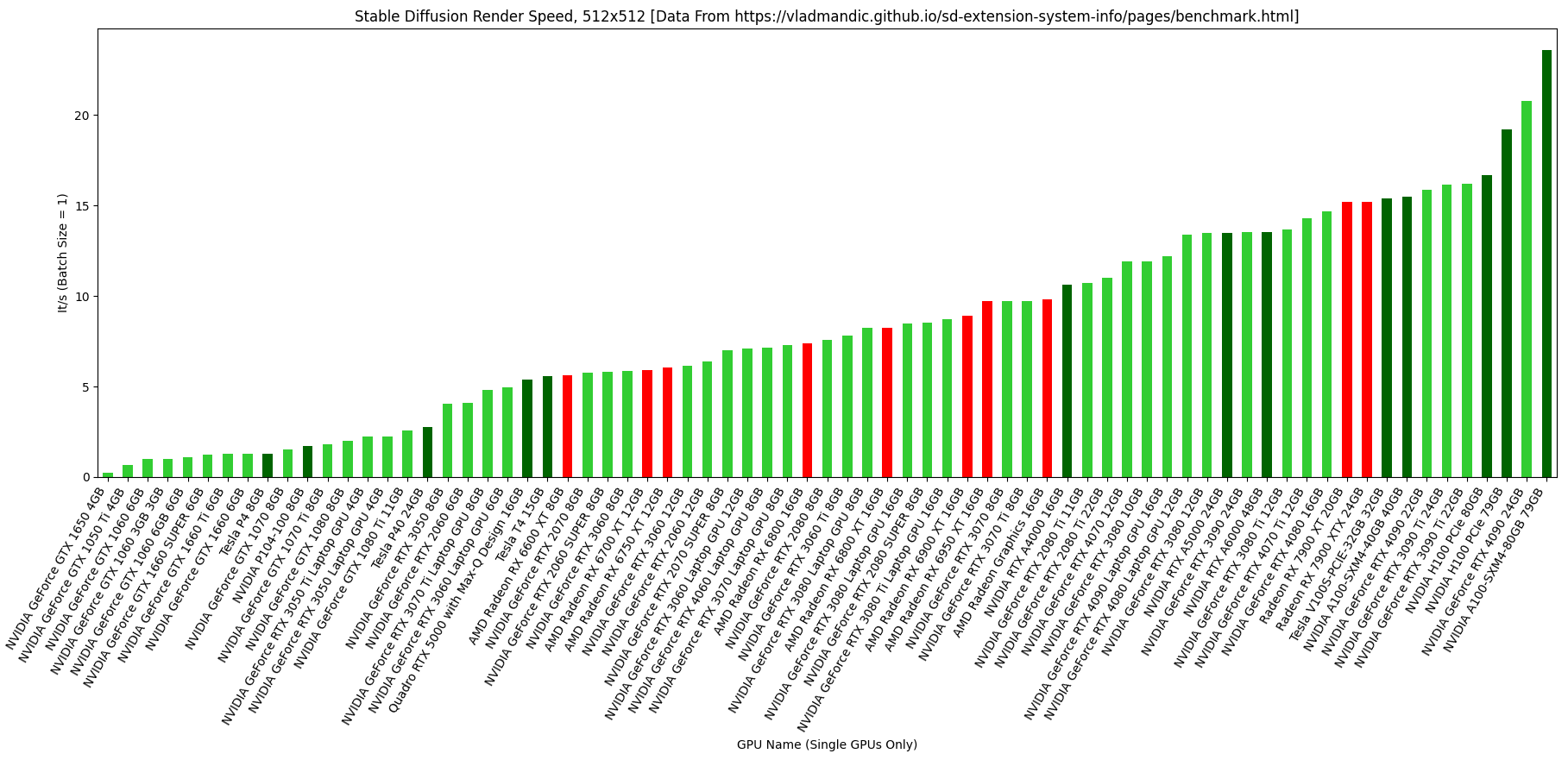this post was submitted on 05 Jul 2023
34 points (100.0% liked)
Stable Diffusion
4337 readers
3 users here now
Discuss matters related to our favourite AI Art generation technology
Also see
Other communities
founded 2 years ago
MODERATORS
you are viewing a single comment's thread
view the rest of the comments
view the rest of the comments


I made a post on c/Linux about this today (https://lemmy.world/post/1112621) and added a basic summary of the Linux specific data. I'm still trying to figure everything out myself. I had to brute force the github data for a few hours in Libra Calc (FOSS excel) to distil it down to something I could understand, but I still have a ton of questions.
Ultimately I've just been trying to figure out what the most powerful laptop graphics cards are and which ones have the most RAM. So far, it looks like the RTX3080Ti came in some laptops and has 16GB of RAM. Distilling out the full spectrum of laptop options is hard. Anyone really into Linux likely also wants to avoid nvidia as much as possible so navigating exactly where AMD is at right now is a big deal. (The AMD stuff is open source with good support from AMD while nvidia is just a terrible company that does not give a rats ass about the end user of their products.) I do not care if SD on AMD takes twice as long to do the same task as nvidia, so long as it can still do the same task. Open source means full ownership to me and that is more important in the long term.